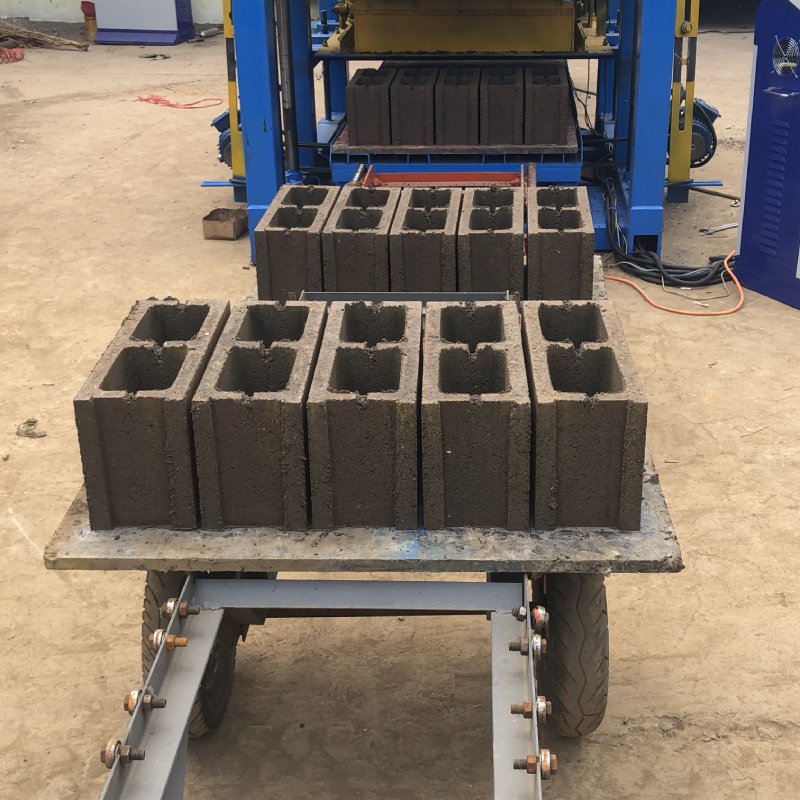
Image source:Aiwei block machine
Introduction:
Chinese brick making machines have witnessed remarkable advancements in recent years, thanks to the integration of advanced materials. These materials offer superior performance, durability, and sustainability, revolutionizing the construction industry. In this article, we will explore the various advanced materials employed in Chinese brick making machines, highlighting their benefits, applications, and contributions to the construction sector.
Importance of Advanced Materials in Brick Making Machines:
The utilization of advanced materials plays a pivotal role in enhancing the efficiency, reliability, and environmental sustainability of brick making machines. These materials possess exceptional properties such as increased strength, durability, thermal insulation, and reduced environmental impact. Let’s delve into the specific advanced materials employed in Chinese brick making machines.
High-Quality Steel Alloys:
High-quality steel alloys are extensively used in the construction of Chinese brick making machines. These alloys exhibit excellent strength, toughness, and resistance to wear and corrosion. They are employed in critical machine components such as frames, molds, and press plates, ensuring the longevity and stability of the machines. The use of high-quality steel alloys guarantees structural integrity, enabling the machines to withstand the high pressures and forces involved in the brick production process.
Advanced Ceramics:
Advanced ceramics find increasing application in Chinese brick making machines owing to their exceptional thermal and mechanical properties. Materials like alumina, silicon carbide, and zirconia are employed in components such as wear-resistant liners, cutting tools, and die sets. Advanced ceramics offer high heat resistance, wear resistance, and dimensional stability, leading to improved machine performance, reduced maintenance requirements, and enhanced product quality.
Refractory Materials:
Refractory materials are crucial in brick making machines to withstand extreme temperatures during the firing process. Chinese manufacturers employ advanced refractory materials such as fireclay, alumina, and silica to line the kilns and furnaces used in brick production. These materials possess high heat resistance, excellent thermal insulation properties, and resistance to chemical corrosion, ensuring optimal firing conditions and efficient energy usage.
Composite Materials:
Composite materials, consisting of two or more constituent materials with different properties, offer unique advantages in Chinese brick making machines. Fiber-reinforced composites, such as carbon fiber or glass fiber composites, are utilized to enhance the strength, stiffness, and impact resistance of machine components. Composite materials contribute to lightweight design, reducing energy consumption and improving overall machine performance.
Sustainable Materials:
Chinese brick making machines are increasingly incorporating sustainable materials to align with environmental goals. The use of recycled aggregates, such as crushed concrete or reclaimed brick fragments, helps reduce the demand for natural resources and minimizes waste generation. Additionally, the incorporation of fly ash, a byproduct of coal combustion, in the brick production process enhances sustainability by reducing greenhouse gas emissions and conserving energy.
Nanomaterials:
Nanotechnology has found its way into the construction industry, including Chinese brick making machines. Nanomaterials, such as nanoclay, nanosilica, or carbon nanotubes, offer enhanced mechanical properties, improved durability, and increased resistance to moisture and chemical degradation. These materials are incorporated into bricks or surface coatings, providing advanced functionalities and performance characteristics.
Insulation Materials:
Efficient thermal insulation is crucial in brick making machines to conserve energy and maintain optimal operating conditions. Chinese manufacturers incorporate advanced insulation materials, such as expanded polystyrene (EPS), mineral wool, or aerogel, to reduce heat loss during the brick curing and firing processes. These materials offer excellent thermal insulation properties, contributing to energy savings, shortened production cycles, and improved product quality.
Smart Materials and Sensors:
The integration of smart materials and sensors in Chinese brick making machines enables real-time monitoring, automation, and improved control over the production process. Smart materials, such as shape memory alloys or piezoelectric materials, respond to stimuli by changing shape or generating electrical signals. Sensors embedded in machine components provide valuable data on temperature, pressure, humidity, and vibration, facilitating efficient machine operation, maintenance, and quality control.
Conclusion:
In conclusion, the use of advanced materials in Chinese brick making machines has transformed the construction industry, offering enhanced performance, durability, and sustainability. High-quality steel alloys, advanced ceramics, refractory materials, composites, sustainable materials, nanomaterials, insulation materials, and smart materials have revolutionized the capabilities of these machines. By incorporating advanced materials, Chinese manufacturers can deliver reliable, energy-efficient, and environmentally responsible brick making machines. Ongoing research and development efforts will continue to drive innovation in material technologies, further improving the efficiency, productivity, and environmental impact of brick production in the construction sector.
